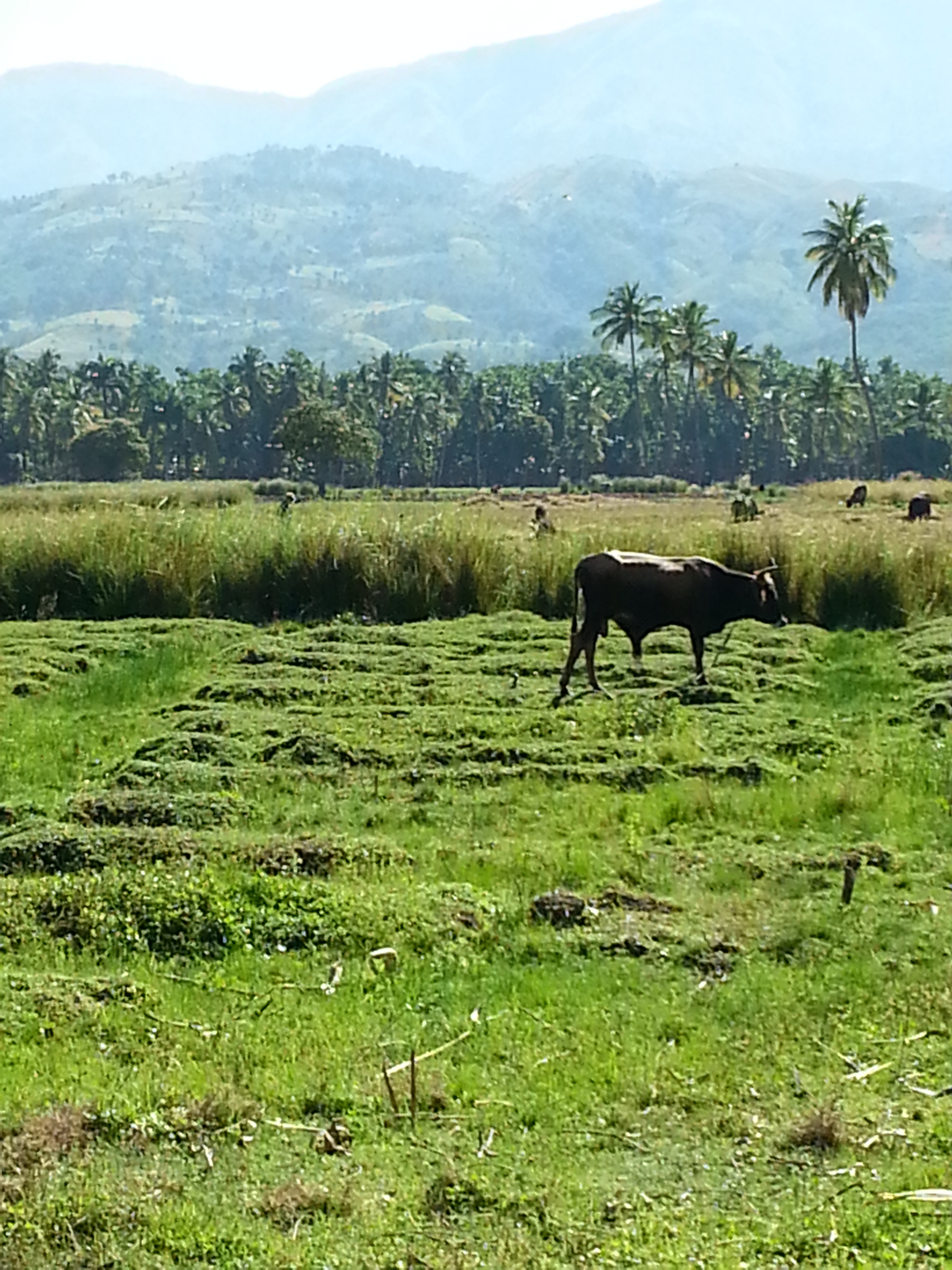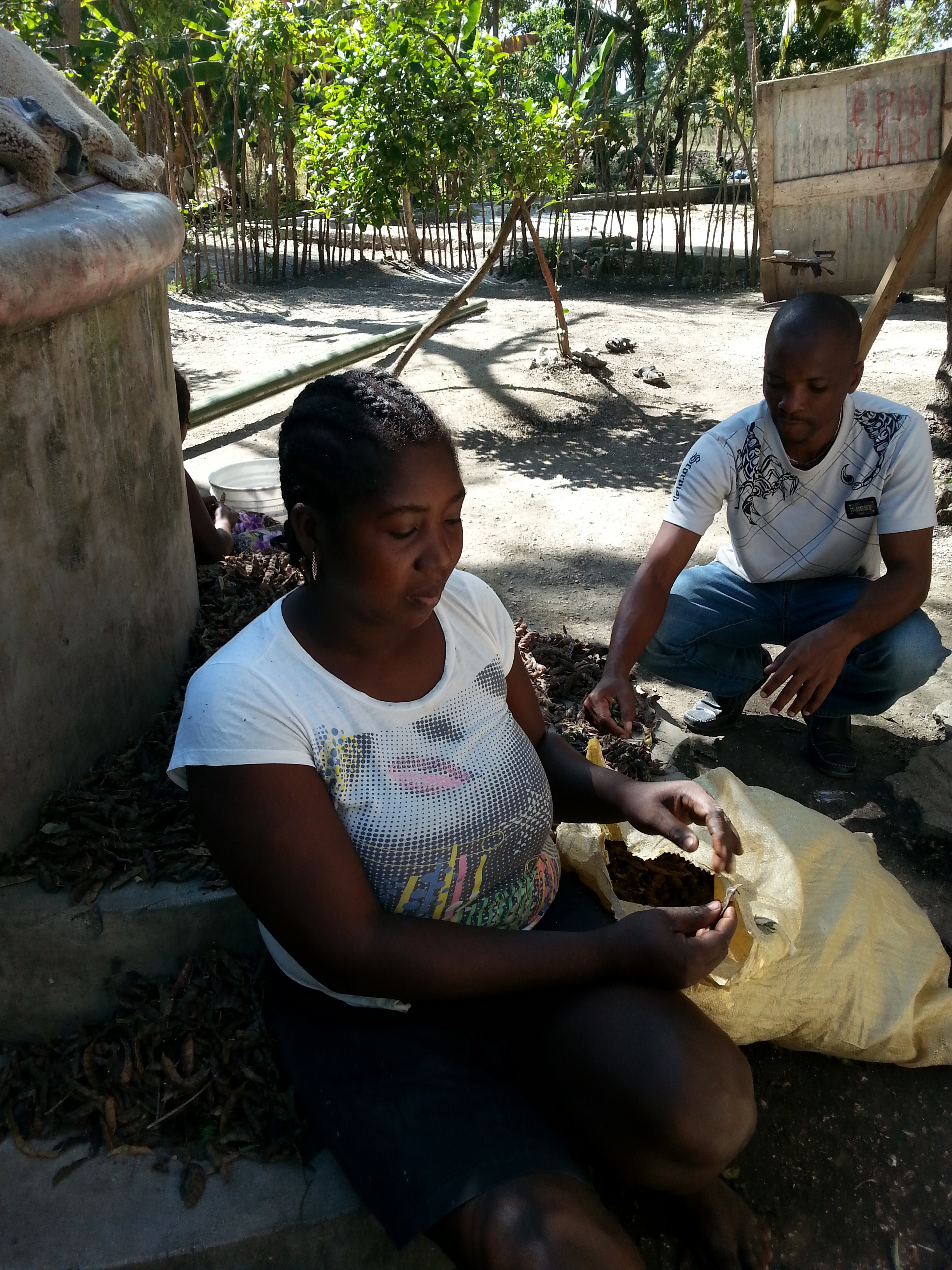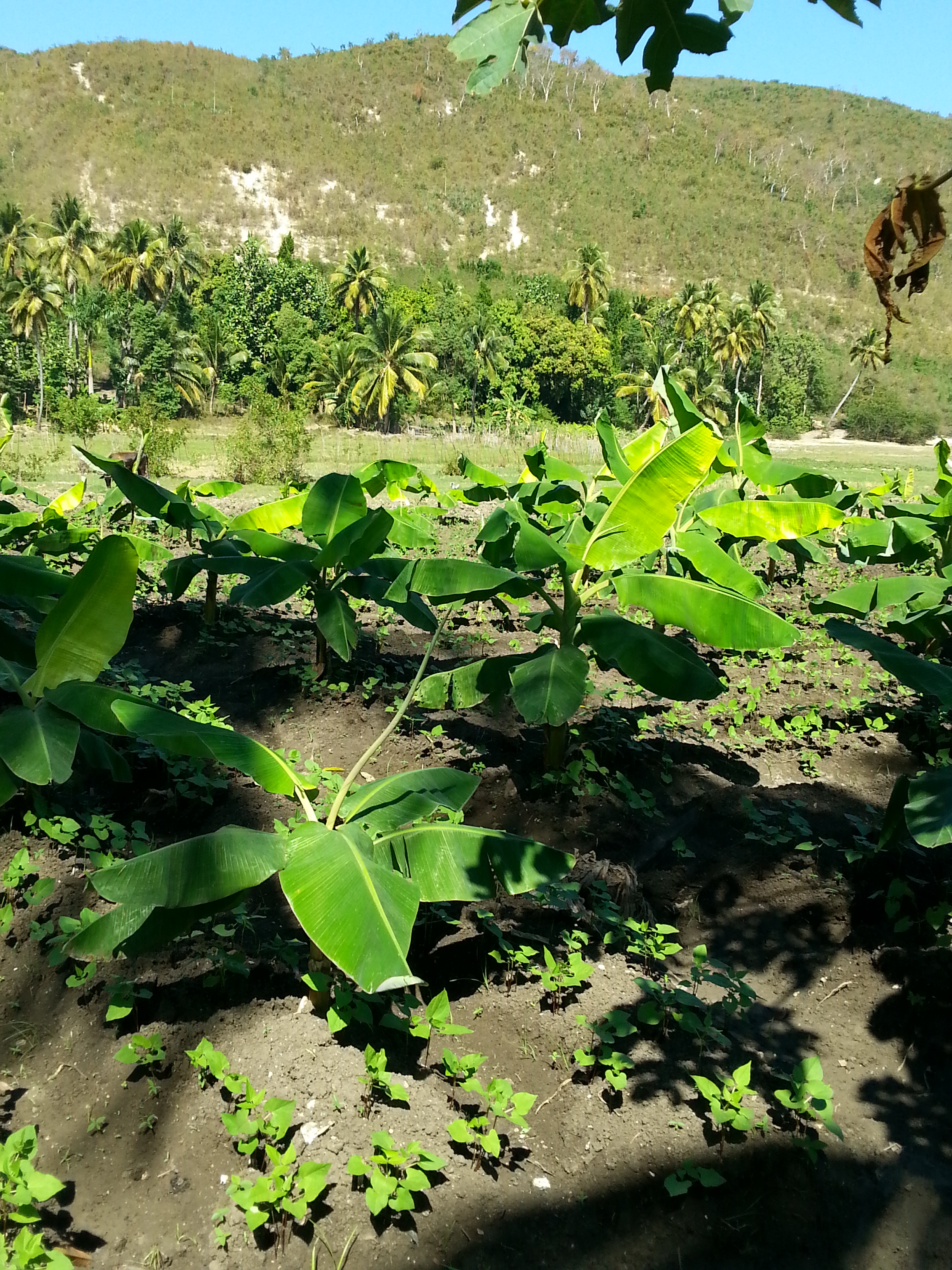
Four years ago this week a devastating earthquake hit the Caribbean Island of Haiti. In the years that have passed, many smallholder farmers have seen important improvements in their lives.
In 2010 Heifer International was able to respond quickly, helping Haitian families recover in the aftermath, and since providing long-term training and support for rebuilding their livelihoods. This support has made a real difference in the lives of the communities we work with in the rural villages.
In 2014, Heifer’s local partner Association Irrigant-Fort Royal (AIFO), a community-based organization in Petit Goâve in the western region of Haiti, has successfully implemented agricultural projects that will bring meaningful social and economic development to this part of Haiti. Through the Ministry of Agriculture and various organizations, AIFO has a centralized irrigation plan with canal water distribution that has boosted food production and reduced famine risks for the community.
Heifer International Haiti began working in Petit Goâve in 2008, and at that time farmers were producing tobacco and rice. Through technical guidance, seed donations and training provided by Heifer Haiti, the community ventured into animal production and other food crops to diversify their products to sell at markets. Today farmers that are part of AIFO produce bananas, okra, pigeon peas, beans, peppers and corn, as well as milk from 120 cattle received from Heifer.

Petit Goâve is approximately 15 kilometers (9.3 miles) from Leogane, the epicenter of the 2010 earthquake. Following the earthquake, farming stopped completely due to destroyed irrigation canals and lack of seeds. Heifer helped rejuvenate the agricultural activities by repairing irrigation canals and providing resources like animals, farm equipment and seeds.
According to Joseph Saint-Cyr, AIFO’s President, the quake was tragic and horrifying, and the immediate recovery period was very difficult for the community.
“We lost two people in the community, 13 homes collapsed, kilometers of the irrigation canals were destroyed, our animals died, and our farms were extensively damaged. We had to start all over again,” he said.
Since the earthquake, Heifer Haiti has distributed 10,500 banana suckers, 2,801 kilograms (6,175 pounds) of corn, 2,603 kilograms (5,739 pounds) of seed beans, 2,012 kilograms (4,436 pounds) of pigeon pea seeds and 25 water cisterns for collecting and storing rainwater. In addition, they received four bulls to plow their land and training on topics including crop and animal production, emergency preparedness and entrepreneurship skills.
In December 2013, 64 Community Animal Health Workers (CAHWs) were trained and graduated in the area. These workers will improve livestock health through treatment or prevention of animal health problems in the community.

Other communities have seen evidence of improvement as well. For example, Fort Royal, where Heifer works with approximately 806 families, is past the recovery process. Families are now building a better and more stable community. Before Heifer Haiti started working with AIFO, the average annual income per household was $400. Currently, income from farm-based and animal production activities averages $1,500 per year.
“We envision a better-developed Fort Royal, and eventually a stronger Haiti. As a community we are working to build an all-weather access road for easier transportation of the farm produce and milk to the market and also lobby with other organizations to have electricity connection in the area,” said Saint-Cyr.
Through its Rural Entrepreneurs for Agricultural Cooperation in Haiti (REACH) program, Heifer Haiti will continue to improve economic opportunities for nearly 20,000 rural households across the country.
Heifer International’s mission is to end hunger and poverty while caring for the Earth. For 70 years, Heifer International has provided livestock and environmentally sound agricultural training to improve the lives of those who struggle daily for reliable sources of food and income. Heifer is currently working in more than 30 countries, including the United States, to help families and communities become more self-reliant. For more information, visit www.heifer.org, read our blog, follow us on Facebook or Twitter, or call 1-888-5HUNGER (888-548-6437).